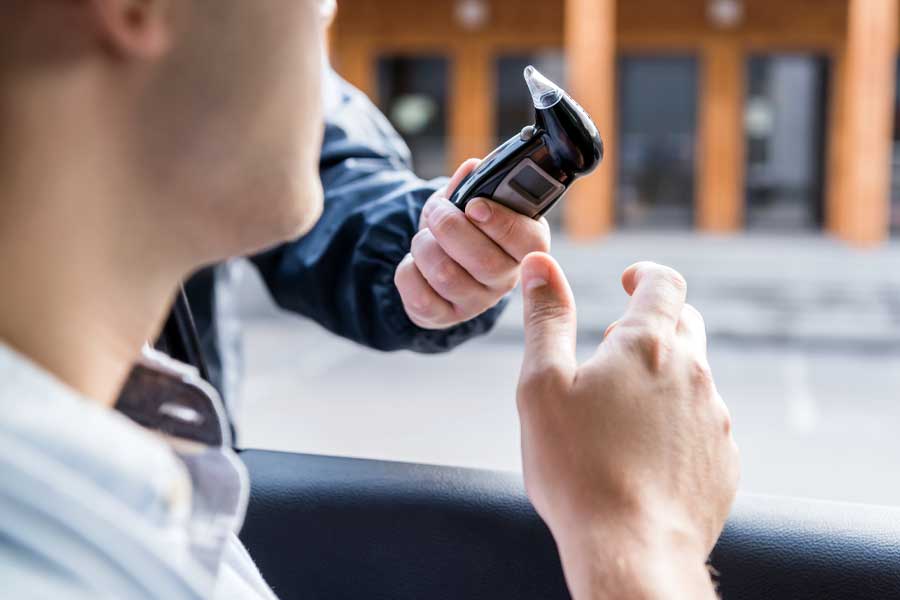If you’re pulled over in Colorado under suspicion of DUI, one of the first questions that might arise is: Can I refuse a breathalyzer test? The short answer is yes—but it comes with serious consequences. Understanding how Colorado’s Express Consent Law works can help you make an informed decision in the heat of the moment.
What Is Colorado’s Express Consent Law?
Colorado has an Express Consent Law, outlined in Colorado Revised Statutes §42-4-1301.1 (PDF link to official statute). This law states that by operating a motor vehicle on Colorado roads, you have already given implied consent to submit to a chemical test (breath, blood, or urine) if a law enforcement officer has probable cause to believe you’re under the influence.
Refusing a Preliminary Breath Test vs. a Chemical Test
There are two types of breath tests in Colorado:
- Preliminary Breath Test (PBT): Usually given on the roadside before an arrest. You can legally refuse this without immediate penalty.
- Evidentiary Chemical Test (Post-Arrest): Once arrested, if you’re asked to take a breath or blood test under the Express Consent Law, refusing has legal consequences.
Refusing the second type—the evidentiary test—triggers automatic penalties.
What Happens If You Refuse the Breathalyzer?
Refusing to submit to a post-arrest breath or blood test in Colorado results in:
- Automatic one-year license revocation (even for first-time offenders)
- Designation as a “persistent drunk driver” under CRS §42-1-102(68.5)
- Mandatory alcohol and drug education and treatment
- Requirement to install an ignition interlock device for two years upon reinstatement
Additionally, your refusal can be used against you in court as evidence of guilt. This is supported by the U.S. Supreme Court ruling in South Dakota v. Neville, 459 U.S. 553 (1983), which held that using a refusal as evidence does not violate the Fifth Amendment.
Are There Any Legal Defenses for Refusing?
While refusal generally leads to penalties, there may be defenses depending on the circumstances. For example:
- Was the officer properly trained and certified to administer the test?
- Did the officer have probable cause to arrest you?
- Were you advised properly of your rights and the consequences of refusal?
A skilled DUI defense attorney can explore these angles to build your case.
Should You Refuse the Test?
There’s no universal answer. In some cases, refusing might limit the state’s evidence against you. In others, it can make things worse by triggering automatic penalties and bolstering the prosecution’s case. If you’ve previously had a DUI or are concerned about license revocation, the consequences of refusal are particularly harsh.
Understanding Your Options and Protecting Your Rights
Yes, you can refuse a breathalyzer in Colorado—but doing so comes with significant legal and administrative repercussions. The state’s express consent framework prioritizes accountability and public safety, which means refusals are treated seriously in court and at the DMV. A refusal can make the legal process more complicated, especially if your driving privileges are essential for work or family obligations.
If you’ve refused a test or are facing DUI charges, the best course of action is to consult with an experienced DUI attorney immediately. A lawyer can evaluate whether the stop was legal, whether proper procedures were followed, and whether any technical errors could reduce or dismiss the charges against you. In many cases, early legal intervention can lead to better outcomes, reduced penalties, or even the preservation of your driving privileges.
At Boal Law, we help clients in Colorado Springs and beyond navigate DUI charges with clarity, strategy, and a strong defense. Whether you’re dealing with a first-time offense or a complex legal history, we’re here to protect your rights and fight for your future. You can choose to go it alone, but you shouldn’t do it lightly. The penalties are steep, and the legal process is complex. If you’ve refused a test or been charged with DUI, speak to a qualified defense attorney immediately.

